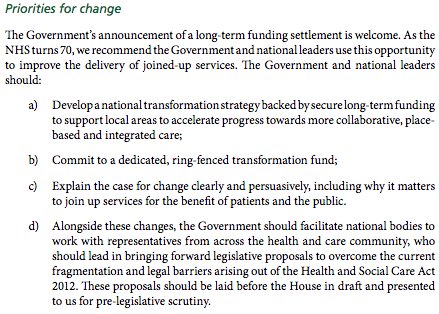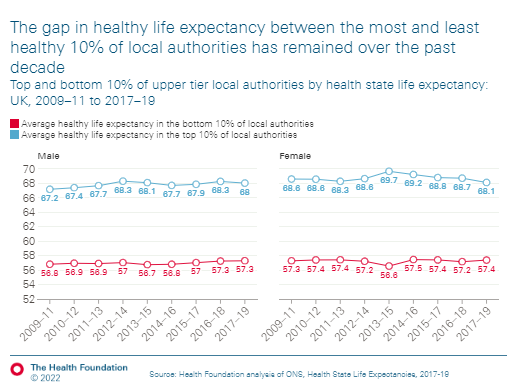The @CommonsHealth integrated care report from @sarahwollaston is really worth a read both for doomsayers and enthusiasts. The historical, legal & financial context to this 'acronym spaghetti' is crucial. Thread on report below, if useful.
publications.parliament.uk/pa/cm201719/cm…
publications.parliament.uk/pa/cm201719/cm…
The idea behind care integration is not new, but despite multiple attempts and reports, internal market reforms since the 1990s have taken things in the opposite direction. 

Communication of STPs, ICSs, ACOs, and ICPs was dreadful. Really dreadful. Future work must place patients and communities front and center. 

Many of the original sustainability and transformation plans were also pretty awful. Despite Simon Stevens trying to reassure people that we shouldn't take them too seriously, patients and staff of course remain suspicious and it will take a lot of work to get them back on board. 

There remain significant problems regarding funding for transformation and how it is allocated, and how STPs and ICSs 'are not a substitute for adequate funding of the [wider NHS] system'. 





So, STPs are designed to integrate care but the current STP performance dashboard doesn't try to measure integration?! Similarly community engagement and prevention are broadly left out. 





Related to this, the governance and the legal framework surrounding all these acronyms needs to be sorted. Without a solid footing it's really hard for local leaders to meaningfully transform care and to navigate the crazy mix of NHS/LA accountable bodies and frameworks. 



My only real criticism of the report is the role of LA public health and PHE in shaping and delivering STPs is largely left out of the conversation. Yes, prevention is there but not much on how it can practically be better addressed. 

But overall, this report's a really useful summary of everything going on with NHS integrated care right now. Integration and circumnavigating the internal market is clearly a required aspect of a sustainable NHS, but so is a proper #NHS70 long-term funding settlement. 

@profchrisham @hughalderwick @HPIAndyCowper @HSJEditor @AnitaCTHF
You've probably all read the report multiple times but in case this thread's of interest.
You've probably all read the report multiple times but in case this thread's of interest.
• • •
Missing some Tweet in this thread? You can try to
force a refresh

























